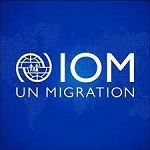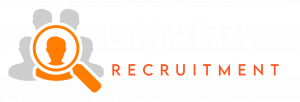
Call for Application
Vacancy No.
IOM-CFA/0154/22
Position Title
International Consultant- Review and finalization of training modules on gender responsive labour migration policy formulation, implementation, and coherence in Africa (JLMP)
Duty Station
Home based
Classification
International Consultant
Posting Period
16.12.2022-26.12.2022
Organizational Context and Scope
The consultancy will contribute to the implementation of the AU-ILO-IOM-ECA Joint Programme on Labour Migration Governance for Development and Integration in Africa (better known as the Joint Labour Migration Programme, or JLMP). The JLMP is one of the critical tools for the implementation of the labour mobility provisions of the Migration Policy Framework for Africa and Plan of Action (2018-2030), the 5th Key Priority Area of the Declaration and Plan of Action on Employment, Poverty Eradication, and Inclusive Development, the First Ten Year Plan of the African Union (AU) Agenda 2063, and the Sustainable Development Goals (SDGs). Its overall objective is to strengthen the effective governance, and regulation of labour migration and mobility, under the rule of law and with the involvement of key stakeholders across governments, legislatures, social partners, migrants, international organizations, NGOs, diaspora organizations and civil society organizations towards increased equitable, full-employment economic growth and sustainable development of the African continent.
Guided by JLMP Strategic Framework[1] and Monitoring and Evaluation Plan[2] (2020 – 2030), strengthening effective and gender-responsive governance of and regulation of migration and mobility in Africa is one of the key strategic objectives of the Programme. Respect for human and labour rights as well as gender-responsiveness are two of the guiding principles of the JLMP Strategic Framework. The programme advocates for the protection, promotion and safeguarding of universal human and labour rights for all international migrants and upholds the principles of equal treatment and opportunities as well as non-discrimination. The JLMP is based on a Gender Analysis and Gender Action Plan, which guide its implementation in order to prevent adverse impacts on men and/or women migrant workers and to use the programme in a transformative way to promote gender equality and equity. This is in recognition that the needs of women and men migrant workers vary at different stages of migration, and as such require a tailored approach.
In 2018, the JLMP facilitated a capacity needs assessment of MS, RECs, social partners, migrant and diaspora associations to identify capacity development gaps and needs at policy and institutional levels, as well as an inventory of existing tools/initiatives by development partners like African Capacity Building Centre (ACBC), IOM, ILO, and ITC-ILO. This culminated into the production of the Capacity Building Strategy on Labour Migration Governance in Africa. The Strategy is contextualized to respond to the identified thematic priorities aligned to specific target groups.
IOM supports the view that successful management of labour migration requires a deliberate and regulated approach to address the complex range of policy issues and choices involved, including the need to learn from past policy failures and experiment with new approaches to migration management that do not undermine development objectives. As part of the implementation of the Capacity Building Strategy and through consultations with African Union Member States and Regional Economic Communities, IOM and the ACBC supported the development of training modules on gender responsive labour migration policy formulation, implementation, and coherence in Africa, through the JLMP Priority Project (2018-2021) supported by the Swedish International Development Cooperation Agency (SIDA). The objective of the training modules is to enhance capacities of MS and RECs’ to integrate a gender lens in all aspects of labour migration governance and mainstream the gender-specific needs of both men and women migrant workers in the design and implementation of respective policies and programming The draft modules were presented for review and validation by select Member States, Regional Economic Communities, and JLMP Partners in January 2022. The reviewers identified the need to have in-depth information on issues such as: women in the informal sector in Africa, skills development, recognition, and Skills Mobility Partnerships (SMPs), and overall overhaul of the sequencing of the draft modules.
The overall objective of the consultancy is to consolidate materials produced by IOM and partners into an updated version, taking into account comments from Member States, Regional Economic Communities, and thematic experts, and in close collaboration with the IOM JLMP team, with a particular focus on women in the informal sector in Africa, skills development, recognition, and Skills Mobility Partnerships (SMPs).
Specifically, the consultancy seeks to:
- Carry out a mapping of the draft modules and identify areas that need further review, in addition to comments received from Member States, Regional Economic Communities and thematic experts.
- Engage in consultations with the thematic experts to understand information gaps and incorporate new developments.
- Align the draft modules to the recommendations of the JLMP Gender Analysis and Plan of Action.
- Assess the case studies and ensure that they are relevant and adaptable to the African labour migration landscape.
Organizational Department / Unit to which the Consultant is contributing: JLMP – Lead project (LM.0482)
Category B Consultants: Tangible and measurable outputs of the work assignment:
- First deliverable – Inception report detailing the consultant’s understanding of the assignment. It will include a matrix summarizing the timelines, proposed methodology for the review and an annotated outine of the modules, as well as observations/areas that need further review – First instalment payment (30%)
- Second deliverable – 1st draft of the revised modules including a. trainer’s manual, b. Three days’ training curricula, c. power point presentations, d. case studies and other activities to facilitate group discussion, peer exchange and learning – Second instalment payment (35%)
- Third deliverable – Final draft of the modules which incorporate comments received from the technical review team – Third instalment payment (35%)
Performance indicators for the evaluation of results
- Inception report including a matrix summarizing the timelines, proposed methodology for the review and an annotated outline of the modules, as well as observations/areas that need further review.
- 1st draft of the revised modules: a. Trainer’s manual, b. Three days’ training curricula, c. Power point presentations, d. Case studies and other activities to facilitate group discussion, peer exchange and learning.
- Final draft of the modules which incorporate comments received from the technical review team.
- Education, Experience and/or skills required
- Education
Post-graduate or equivalent degree in Law, Public Policy and Management, Public Administration, Human Rights, Development Studies, International Development, or any other relevant university degree.
- Technical experience/competencies
- Minimum international work experience of 5 – 10 years.
- Demonstrable technical experience in the field of training, migration management, migration policy, labour migration and human mobility, mixed migration, diaspora and development, and return/reintegration.
- Familiarity and demonstrated experience with gender issues in the context of human mobility in Africa.
- In-depth knowledge of contemporary labour migration dynamics / migration and development issues in Africa and other regions.
- Proven substantial involvement in conducting needs assessment and developing training modules/curriculum, training materials etc.
- Demonstrated experience and skills in facilitating stakeholder/working group consultations and trainings.
- Knowledge of global, continental, and regional policies, laws and initiatives regarding labour migration, migration, and mobility.
- Previous working experience with the AUC, RECs, the UN (in general) or the IOM and ILO.
- Strong oral and written communication skills in English, working knowledge of other AU languages will be an advantage.
Travel required
The assignment will be conducted virtually.
Competencies
Values
-
-
- Inclusion and respect for diversity: respects and promotes individual and cultural differences; encourages diversity and inclusion wherever possible. – Integrity and transparency: maintains high ethical standards and acts in a manner consistent with organizational principles/rules and standards of conduct. – Professionalism: demonstrates ability to work in a composed, competent and committed manner and exercises careful judgment in meeting day-to-day challenges.
-
Core Competencies – behavioural indicators
-
-
- Teamwork: develops and promotes effective collaboration within and across units to achieve shared goals and optimize results. – Delivering results: produces and delivers quality results in a service-oriented and timely manner; is action-oriented and committed to achieving agreed outcomes. – Managing and sharing knowledge: continuously seeks to learn, share knowledge and innovate. – Accountability: takes ownership for achieving the Organization’s priorities and assumes responsibility for own action and delegated work. – Communication: encourages and contributes to clear and open communication; explains complex matters in an informative, inspiring and motivational way.
-
[1] https://au.int/sites/default/files/documents/39732-doc-jlmp_strategic_framework_eng_dec_6.pdf
[2] https://au.int/sites/default/files/documents/39733-doc-jlmp_mel_framework_eng_2_dec_6a.pdf
How to apply
HOW TO APPLY:
Interested candidates are invited to submit their application following the specifications outlined below through on or before December 29, 2022 ethiojobs.net , referring the position title and Vacancy number in the subject line of your email; applicant who doesn`t follow the required application procedure will automatically be disqualified from the competition.
SPECIFICATIONS FOR APPLICATION
a) Technical proposal outline:
I. Conceptual framework (2-3 pages)
II. Detailed methodology (2-3 pages)
III. Work plan (1-2 pages)
IV. Explanation of the consultants’ suitability for the assignment (1 page) including names and contacts of three recent professional referees
V. Two examples of previous similar work
VI. Names and CVs of individuals or team members proposed, highlighting their experience relevant to this study and their roles in the achievement of the assignment.
b) Financial proposal:
I. The proposal will include a lump sum cost for the assignment
II. A breakdown of the costs related to all aspects of the consultancy (consultancy fee, travel, and the assignment deliverables).
Only shortlisted candidates will be contacted.
We strongly encourage qualified women to apply!
